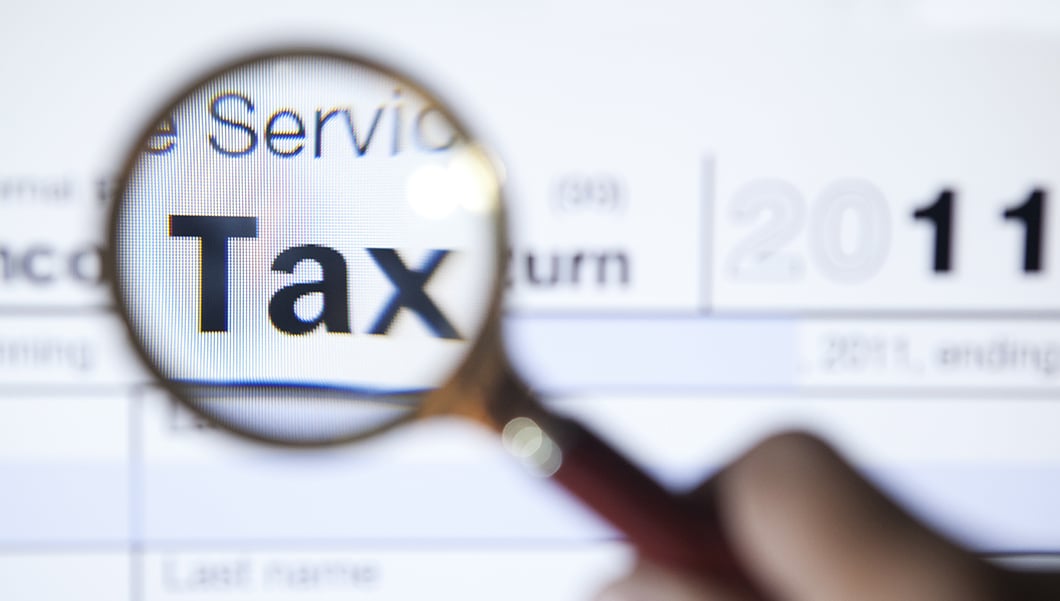
Tax e-news / November
IHT BUSINESS PROPERTY RELIEF ON FURNISHED HOLIDAY LETTINGS
IHT business property relief is extremely valuable, as on your death it effectively eliminates inheritance tax on the value of the property. The problem is that, following recent case law, HMRC are likely to resist any claims on the grounds that the activity of letting properties is nothing more than an investment, even where the people using your property are holiday makers.
The only hope is to ensure that plenty of additional services are provided which would not be provided if it was an ordinary property let. They could include:
- providing breakfast (likely to be sufficient to qualify on its own, but may well not be feasible)
- taking the holiday makers on trips to local attractions during their stay
- on-site help
If you own furnished holiday lets, or are considering a purchase, we can advise on the scope for obtaining BPR, where careful forward planning is essential.
THE EMPLOYER’S £2,000 NIC ALLOWANCE
This valuable allowance is due to start for all businesses on 6 April 2014, and simply exempts the employer from the normal employer NICs of 13.8% of the earnings paid.
The mechanics are that the allowance will be obtained via standard payroll software and HMRC’s RTI system. A facility will be added to the RTI Employer Payment Summary referring to the allowance in the form of a “yes/no” indicator, with payroll software providers doing the same. The employer then offsets the allowance against each monthly Class 1 secondary NICs payment until fully claimed or the tax year ends. For the following tax year the allowance is available against NICs as the liability arises during the year.
For a small company rewarding working shareholders by way of dividends, the current thinking is that from 6 April 2014 it will usually be best to receive remuneration of £10,000 per annum instead of limiting it to the NIC secondary threshold of (currently) £7,696 as is normally done. This is because earnings of £10,000 will fully utilise the new level of personal allowance, whereas dividends effectively waste the allowance.
GUIDANCE ON THE NEW GENERAL ANTI-ABUSE RULE (GAAR)
This controversial measure allows HMRC to nullify an arrangement which is held to be abusive in terms of avoiding tax. This is all fairly subjective, but HMRC have published guidance on how they will operate the new rules which do give some comfort.
In particular they have detailed the approach to take when considering whether the new rule should apply, and to protect you from any HMRC attack we will always make sure that when giving tax advice the possible operation of the GAAR will be fully considered. The extent of any sensible disclosure to HMRC is linked to this when preparing your annual tax return.
AUTO ENROLMENT OF EMPLOYEES INTO A PENSION SCHEME
The Auto Enrolment Scheme is also controversial but in a different way, as it imposes a legal obligation on employers to enrol employees into a pension scheme that meets certain standards.
The start date for auto enrolment varies, but all employees aged between 22 and the state pension age must be enrolled into a pension scheme, unless they earn up to the basic personal allowance of £9,440 (going up to £10,000 for 2014/15). Employees can opt out if they wish (and indeed opt in if not automatically enrolled).
HEALTH AND WELLBEING TAX PLAN
The latest campaign from HMRC is aimed at chiropodists, psychologists and homeopaths who feel they might not have declared all of their income. It offers the usual time-limited disclosure opportunity in which to bring tax affairs up to date on preferential terms. The campaign is not intended for doctors and dentists, who were covered by a previous disclosure initiative, or for nurses or social workers.
Individuals have until 31 December to join the scheme. They will then have until 6 April 2014 to make a disclosure and pay the tax owed, facing a penalty of a maximum of 20% (which is less than would apply if HMRC were to discover undeclared income themselves). If you know of anyone in this category having tax concerns, please refer them to us and we will get them the best available tax deal.
TRANSFERABLE TAX ALLOWANCE FOR COUPLES
From 2015/16, married couples and civil partners can transfer up to £1,000 of their personal allowance to their partner, but only if neither individual pays tax at the 40% rate. It is therefore a modest tax break, worth a maximum of £200 each tax year, but every little helps (as we are often reminded)! The estimate is that over 4 million couples will benefit. Oddly, there is no allowance transfer available where a man and woman are living together but are not married.
TAX DIARY OF MAIN EVENTS FOR NOVEMBER / DECEMBER 2013
|
Date |
What’s Due |
| 1 November | Corporation tax for year to 31/01/13 |
| 19 November | PAYE & NIC deductions, and CIS return and tax, for month to 5/11/13(due 22 November if you pay electronically) |
| 1 December | Corporation tax for year to 28/02/13 |
| 19 December | PAYE & NIC deductions, and CIS return and tax, for month to 5/12/13 (due 22 December if you pay electronically) |
| 30 December | Deadline to file 12/13 SA tax return online if unpaid tax up to £3000 is to be collected via 13/14 PAYE code |
NATIONAL MINIMUM WAGE – EFFECTIVE 1 OCTOBER 2013
| 21 and over | 18 to 20 | Under 18 | Apprentice* |
| £6.31 | £5.03 | £3.72 | £2.60 |
| *This rate is for apprentices under 19 or those in their first year. If you’re | |||
| 19 or over and past your first year you get the rate that applies to your age. | |||
Guide to selling your business
Your simple guide to helping you maximise the value in your business.
Sign up to receive alerts
Call us on 01628 770 770 for a no-obligation chat
You may also be interested in...
New Companies House filing requirements under the Economic Crime and Corporate Transparency Act (ECCTA) 2023.
What’s happening? The ECCTA received Royal Assent in October 2023 and gives more powers to Companies House to play a more significant role in tackling economic crime and supporting economic growth. Introduction of new laws under the ECCTA will be…
Companies House Filing Fee Increases from May 2024
From Wednesday 1st May 2024 the revised Companies House filing fees will come into effect. The change comes following The Economic Crime and Corporate Transparency Act 2023 which allows Companies House increased powers to ensure accuracy, verify the…
April 2024 – Tax News
Happy new tax year In this April issue we highlight some of the key tax changes that take effect from the start of the new tax year. Unfortunately, most of the income tax and national insurance thresholds continue to be frozen, resulting in an…



